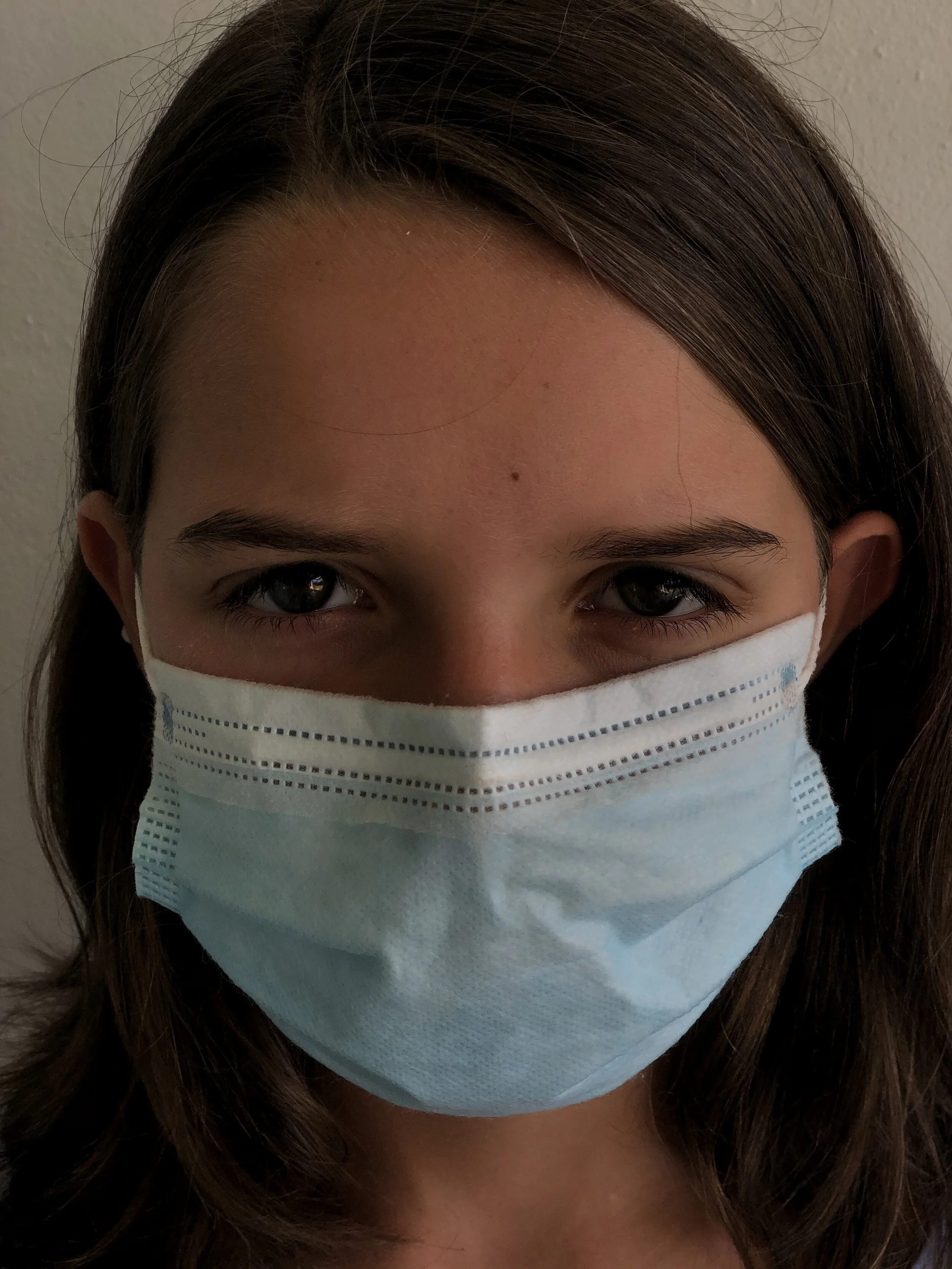Masks: Politics or Safety?
Not since the introduction of bikinis has a tiny piece of cloth been so controversial, or wanted. Whether it has to do with the origins of the virus or wearing a mask, there has been confusion since the beginning. With doctors, the media, businesses like Delta Airlines and political leaders like President Trump shifting the mask-wearing game all the time and so much unknown, who’s to believe?
By Annabelle Walter
Are masks protecting the public's safety — or masking a political agenda? Medical experts, including Dr. Sanjay Gupta, insist that masks are a medical necessity, not a political choice. That has not stopped people from seeing masks as a political power grab that allows the government to control the public and instill fear. With so much conflicting information and opinion circulating, how do we sort out the truth?
Gupta, CNN’s chief medical correspondent, insists that masks are required for safety. Judge Christopher C. Nash, a Thirteenth Circuit Court judge in Florida, agrees that masks are constitutional because they are designed to keep the public safe, not to abridge liberty.
“That constitutional right you have to life, liberty and due process of law doesn’t mean you have unfettered liberty,” says Nash, pointing to seat belt and motorcycle helmet laws and speed limits as other examples of this constitutional principle.
To explain how masks work in simple terms, Gupta compares them to a garden hose: “If you had a garden hose and I put something around the end of the garden hose, not very much water is going to get out,” he explains. But, if I put something further away from the garden hose, it will still block it to some extent, but there will be more water obviously getting around the hose the further away I go.”
A portrait of Margaux Walter, a mask advocate, wearing a medical mask on July 31, 2020, in Hamilton, Bermuda. Photo by Annabelle Walter
Gupta tells those who do not want to wear masks that they are not airtight. “You’re protecting those around you. People say, ‘Well, I’m willing to take the risk.’ I remind them that they’re not the ones taking the risk. They’re taking the risk for their wives, their husbands, their kids, their loved ones, people that they live with, whatever it might be.”
In recent months the landscape of mask-wearing has shifted. Businesses, including Delta Airlines, that did not require masks a few months ago, now do. Political leaders, including the president, are rethinking their resistance to wearing masks. President Trump tweeted on July 20: “We are United in our effort to defeat the Invisible China Virus, and many people say that it is Patriotic to wear a face mask when you can’t socially distance. There is nobody more Patriotic than me, your favorite President!”
Delta’s CEO Ed Bastian said on NBC News’ Today show, “If you board the plane and insist that you not wear a mask, we’ll insist that you don’t fly Delta into the future. We already have over 100 people that we’ve put on this list.”
Will these new approaches have an impact? Gupta says that as more companies and influential people support mask-wearing, others will follow.
In the meantime, some are still reluctant to wear a mask, in part because they’ve received mixed messages over time. Anti-mask advocate Tripp West believes that the number of mistakes, lies and mixed messages told by the media led people to lose trust in science and news.
When I asked West how he can ignore all the scientific evidence, he returned to his lack of trust in the media. Because both doctors and news channels have gotten it wrong, he says, he doesn’t believe in the science anymore.
As a 15-year-old, sorting out facts from fiction is like trying to find a four-leaf clover in a massive field. The media and science continue to be contradictory like the stories about whether hydroxychloroquine is effective for battling COVID or not. When everyone gets their information from different sources and receives different opinions on what happened, it is hard to find the truth. This lack of fact and abundance of opinions and theories makes it easy to understand why some do not trust the media.
When West goes to the grocery store, he wears a mask to be courteous of others. However, he objects to restaurants requiring patrons to wear masks when they’re not eating. West says, “The virus can't jump from table to table, but it could jump from you walking to the bathroom. Which just doesn't seem right to me.”
When I asked West more about why he thought it was not right to force people to wear a mask, he compared it to other illnesses, saying that there were many dangers far worse than COVID-19. He used H1N1 as an example of this saying, "61,000,000 Americans were infected with it, only 17,000 died from it, so it’s less than influenza, and it’s less than the coronavirus, but 325,000 people were hospitalized. Those are extraordinary numbers for infection and the Obama administration after a while just stopped testing, they literally were like, ‘don’t test anymore.’”
However, H1N1 was far less deadly: That virus killed 17,000 people in 15 months; COVID has killed almost 10 times as many — nearly 160,000 — within five months and continues to spread.
Dr. Sanjay Gupta, CNN’s chief medical correspondent. Credit: CNN
One difference between this virus and others, says Gupta, is someone who is asymptomatic can infect others. “If you can spread it when you’re not sick and you don’t know whether you’re sick or not, anyone could be spreading the virus.”
Gupta believes that as numbers worsen, people will see that wearing a mask is a small price to save a life. “Once people have experienced this to some extent, they will see the value of it more.” He continues, “We’re still very much early in this pandemic, so it’s not too late.”
Gupta’s words are hopeful for the future. While the anti-maskers make a clever argument by twisting the narrative into a political one, even as a 15-year-old, I can see their theories are murky.
About the Writer:
Annabelle Walter of Short Hills, New Jersey
Annabelle is a student at Kent Place who loves theater, ethics, athletics and writing. She has lived and traveled all around the world with her family and loves writing about her experiences.


